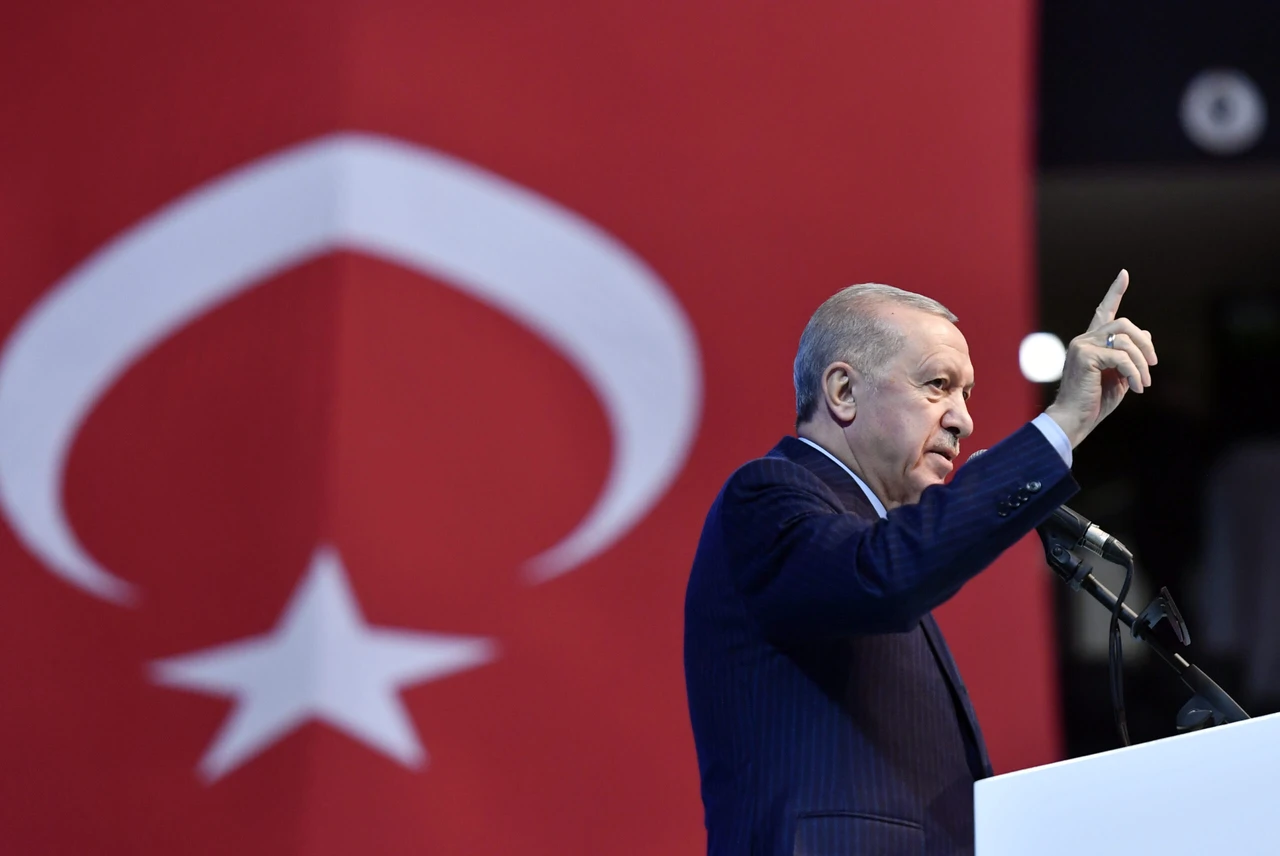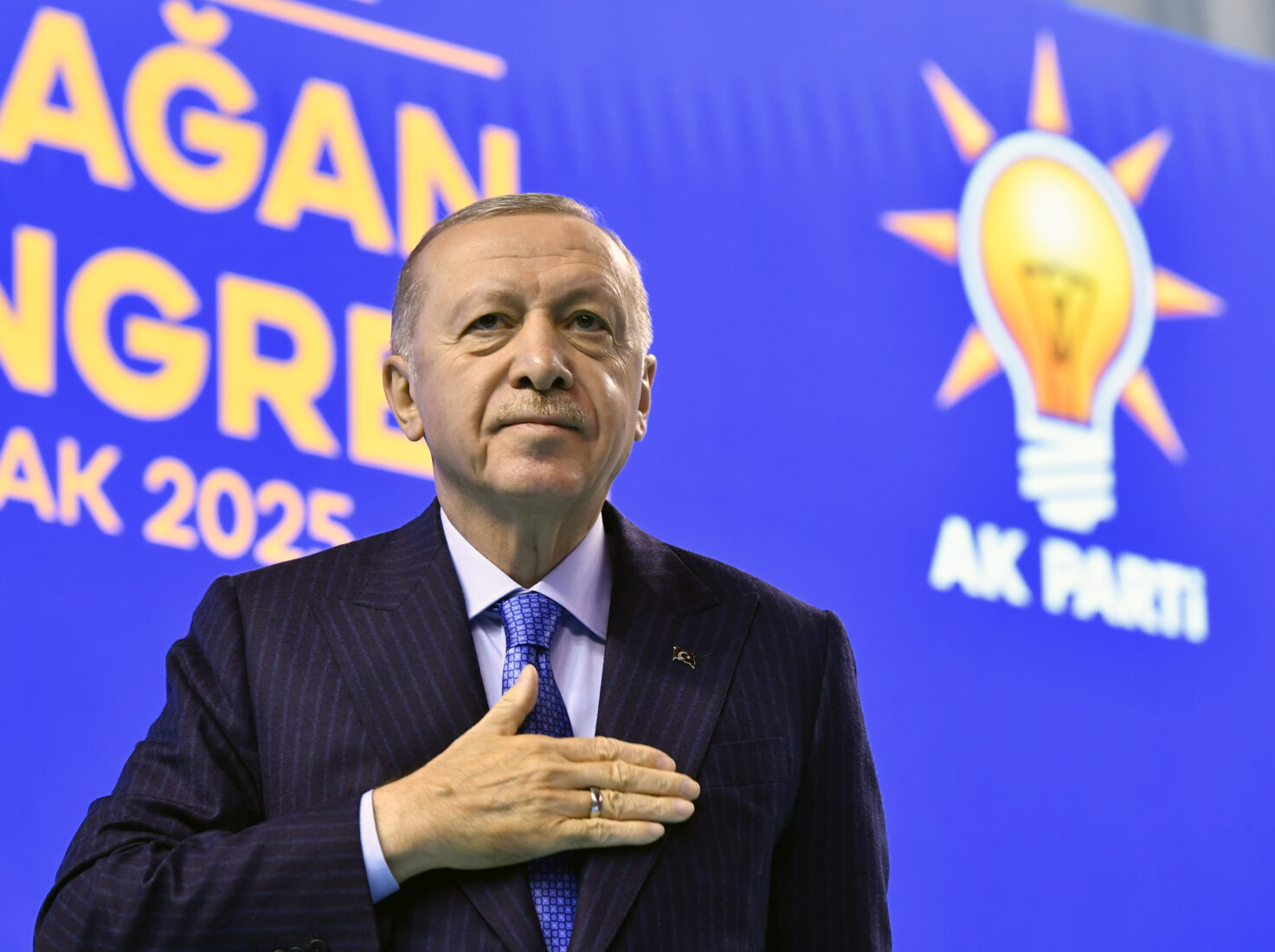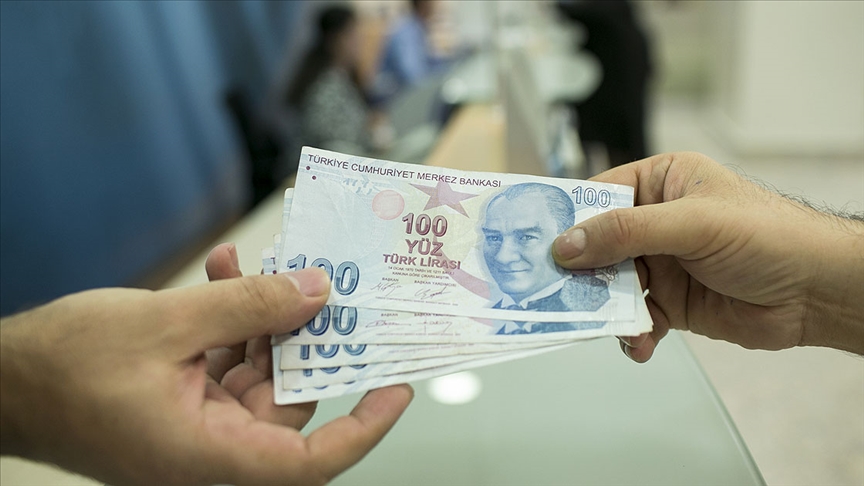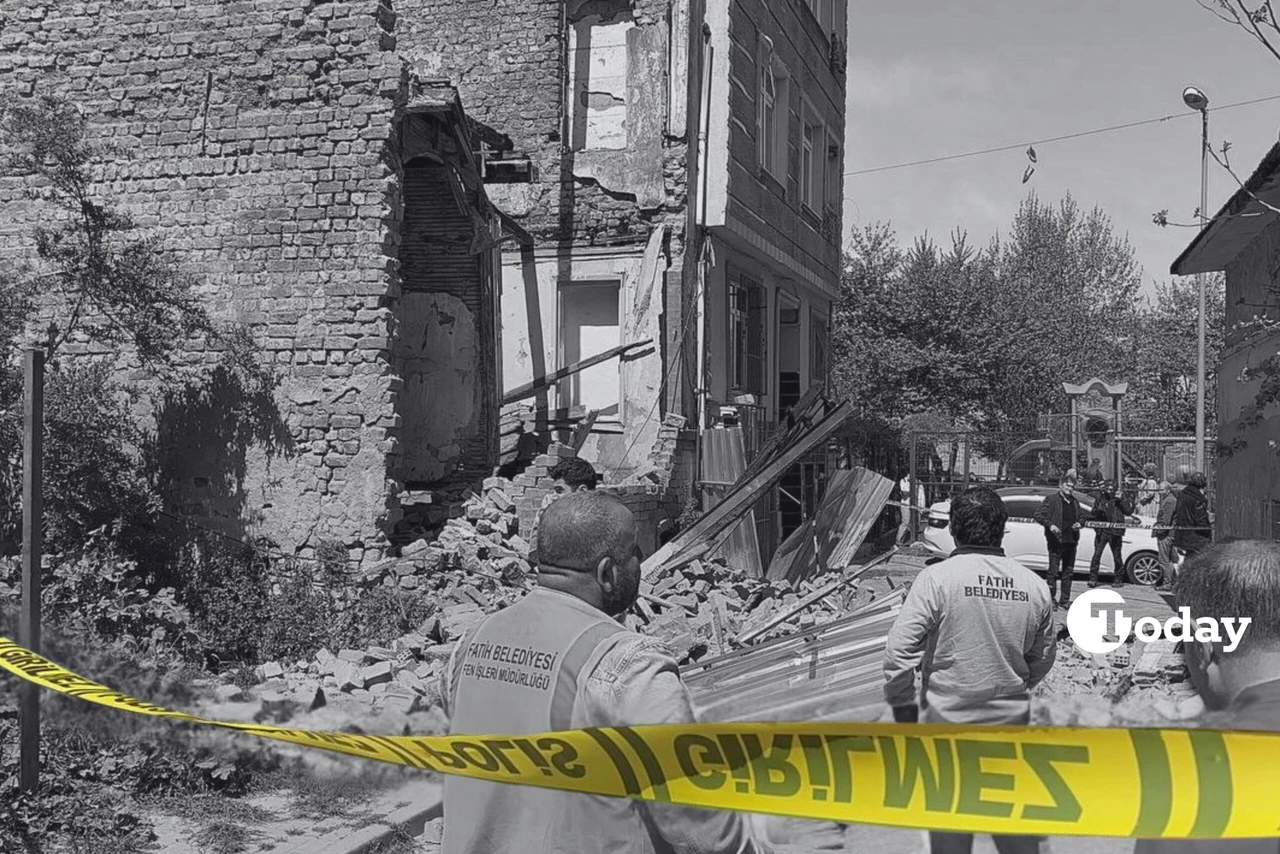Poll shows 65% of Turks oppose constitutional change for Erdogan re-election
 President and leader of the ruling AK Party Recep Tayyip Erdogan makes a speech during the AK Party’s 8th Ordinary Provincial Congress in Mersin, Türkiye on Jan. 18, 2025. (AA Photo)
President and leader of the ruling AK Party Recep Tayyip Erdogan makes a speech during the AK Party’s 8th Ordinary Provincial Congress in Mersin, Türkiye on Jan. 18, 2025. (AA Photo)
A recent survey revealed that nearly two-thirds of Türkiye’s citizens oppose changing the constitution to allow President Recep Tayyip Erdogan to seek another term.
The poll, conducted by Bupar Research and Consulting Company between Dec. 23-31, 2024, surveyed 2,420 respondents across Türkiye’s 12 regions and 26 sub-regions through face-to-face interviews.

According to the survey, 65.7% of respondents rejected the idea of amending the constitutional two-term limit for the presidency, while 24.5% supported such a change. The remaining 9.8% expressed no opinion.
Economic challenges are primary concern to 85% of Turkish voters
The poll also revealed significant concerns about Türkiye’s economic challenges, with 85% of respondents identifying inflation and poverty as the country’s most pressing issues. Housing costs and utility bills followed as major concerns, cited by 44% and 45% of respondents, respectively.

Turkish public shows strong support for secular democracy
On matters of governance and state institutions, the survey showed strong public support for secular democracy, with 75.5% affirming the necessity of secularism and 87.4% supporting democracy as essential for Türkiye.
The poll also gauged public reaction to recent controversial statements by Nationalist Movement Party (MHP) leader Devlet Bahceli regarding the potential parliamentary participation of PKK terror group leader Abdullah Ocalan.
A significant majority (67.6%) disagreed with Bahceli’s proposition, while 45.1% of respondents interpreted his statement as an attempt to appeal to pro-Kurdish DEM Party voters for Erdogan’s potential re-election bid.
The survey indicated widespread disapproval of current refugee policies, with 68.2% opposing Erdogan’s statement welcoming Syrian refugees to stay in Türkiye.
Similarly, 55.3% expressed disagreement with the government’s overall Syria policy.
Public confidence in religious institutions appears to be waning, with 83.3% of respondents indicating they do not trust the Directorate of Religious Affairs, while only 11.1% expressed confidence in the institution.



